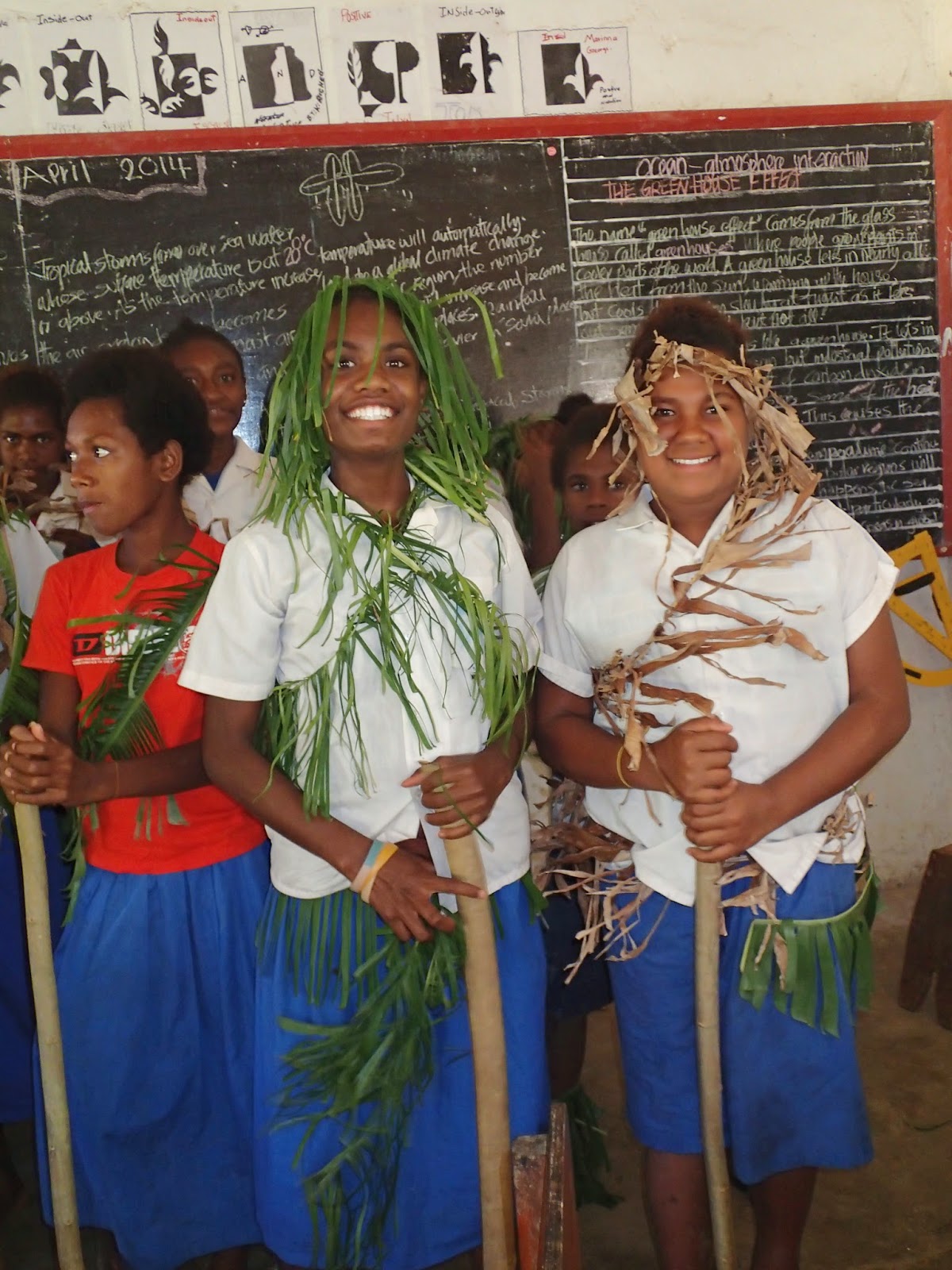Traveling in Vanuatu is hilarious. It’s always kind of
unpleasant and nothing is secure unless you are on the plane and it’s taxi-ing
down the runway. Even ships, if you’re on them, they can change the routine,
and be like, oh sori, we’re actually going to do this other thing first. It can
be pretty stressful to travel if you have a set date you have to get somewhere
else by. But if you have a lot of free time, it’s kind of fun. I think if you
had enough money and felt like you had the freedom to say “I’m going to a
northern island and I’ll get there when I get there,” you’d have a good time. I actually fantasize about that sometimes, imagining the time and the money to go all over the Pacific, seeing everything over the course of a few years. Kind of like Paddling the Pacific by Paul Theroux, but on a longer time frame.
I’ve been trying to get to Ambrym to do a workshop and walk
around a little. People in Vanuatu think that Ambrym is full of black magic,
and I was told by an auntie to look after my food while I’m there, so no man
Ambrym can put a love potion in. (She said it in a joking tone but it’s still
like, whoa, that’s your advice.) They also have some really nice kastom things.
They do really nice wood carvings, making these figures that are called
tamtams. In Vila, and on Ambrym, too, you can buy these little ones, maybe the
height of your hand to the length of your arm. But in kastom for men who are
taking different chiefly ranks, there are special ways to carve them and they
can be really, really big. In the Cultural Center here in town they have a few
tamtams that are just enormous.
[Insert picture of the tamtam with me and my parents.]
 [wan tamtam ia]
[wan tamtam ia]
So what’s complicated is this. I’m trying to travel north
with Jessica (another vol) out of Vila. There’s Michelle, who’s trying to meet
us out of Epi. So we need to leave Vila, hit Epi, and then get to Ambrym—three points
on our travel.

Over the weekend, when we called the office, they told us that the ship would definitely go Vila-Epi-Ambrym. On Sunday, the crew told us that, kiaman, the ship would definitely go direct to Santo, in the north, do not pass go, do not collect 200 dollars. On Monday, we called the ship and they told us that they were definitely still going Vila-Epi-Ambrym and that they would be out that night. But around mid-day, they told us that it would be delayed until Tuesday. Yesterday, we put our stuff on the ship and bought tickets, and got told that the ship would Vila-Epi-Ambrym out at 8. We got so prepped; I got 500 vatu of kava and two Solbrews, calamari from Island Time, bread and butter and pate and cookies. Then we got to the wharf and … No gat. The ship’s now supposed to be out tonight at 6.
A volunteer who lives in town was really nice and let us all crash over at his place last night. We went out, drank a little kava, ate our dinners, rolled out in the morning. God willing, I will leave Efate tonight. But you know ... it's not the end of the world if it doesn't work. I'll get a refund and I'll go do something else. I do have to be back in Vila on July 14th because I have an international plane ticket -- awo.































